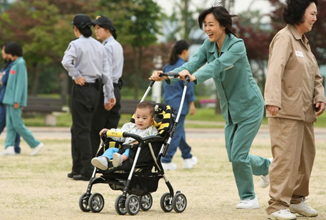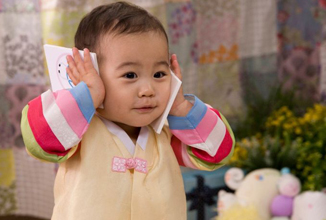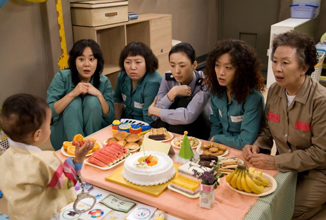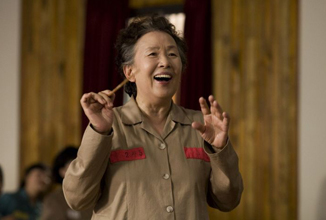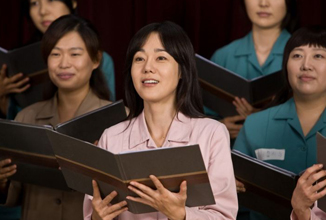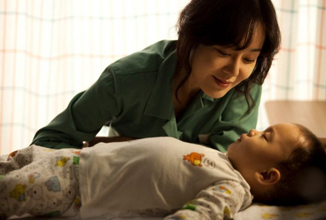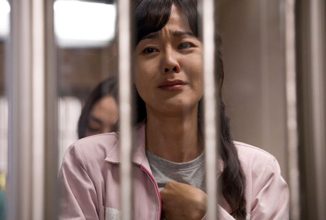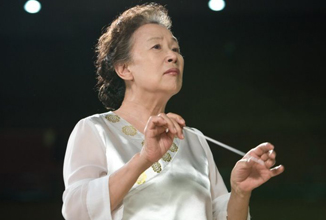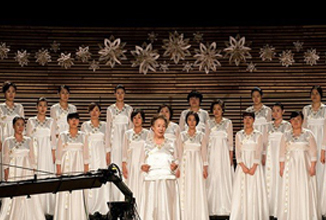
 |
||||||||||||
Synopsis: Jeong-hye (Kim Yoon-jin) is a pregnant woman who is convicted of killing her brutal and abusive husband, and is sentenced to ten years in prison. Giving birth to a baby boy shortly after her incarceration, she is soon informed that her time with her son is limited, with the day quickly drawing near when he will be taken away from her. In an effort to gain favour with the prison authorities (to enable her to be allowed to have a day out with her child), Jeong-hye and her fellow inmates decide to create a prison choir and, even though Jeong-hye's singing is initially so bad that it actually makes her baby cry, slowly her, and the other choir members', singing improves to the point where they are considered good enough to participate in a choral competition. However, to her dismay, Jeong-hye discovers that the day of the event is also the day she will lose her son forever...
Depending on its context and handling, the mixing of genres in films can either intelligently supplant expectations and provide genuine twists of emotions in viewers; or, alternatively, give a jarring sense of unmeshable elements being forced together, despite being very much at odds with each other. Sadly, in Harmony, the latter is very much the case.
Add to that, the fact that the story of the choir, and the humour contained within, is extremely clichéd, to say the least (repeatedly screaming similar ideas to a very famous, and equally clichéd, comedy film about a choir, from Western culture), to the extent that it actually detracts from any emotional resonance sought by the poignant aspects of the story, and is, at times, even rather cringe-worthy. The aforementioned jumping back and forth between melodramatic and comedic elements (noticeably switching rather than gently morphing) certainly doesn't help matters and, it must be said that, for the first half of the film, Harmony feels much like two separate, almost unconnected, genre films spliced together.
As far as the drama aspects of Harmony are concerned, first-time director Kang Dae-gyoo's inexperience clearly shows throughout in his numerous attempts to deliberately force viewer tear ducts into overdrive. Put simply, he just tries too hard, and pushes too far:
In the second half of Harmony, the story changes its focus to the choir's attempt to win the choral competition, and subsequently moves to a number of years after the event to conclude its tale, but while this rather more uplifting section works to a greater extent within the serious drama than the earlier comedic aspects, a heartwarming, apparent 'end' to the story has an overly melancholy, melodramatic addendum tacked on as a conclusion to the plot - once again in a deliberate, and rather obvious, effort to force viewer emotions. Though not entirely unsuccessful, this conclusion is, however, so utterly contrived as to, once again, result in the loss of the vast majority of the intended pathos.
Of all the aspects of Harmony, easily the most deftly accomplished are the music and musical numbers (by Lee Byeong-woo), when taken on their own merits, and the acting, especially in the case of Kim Yoon-jin (who US television fans will most likely recognise from her appearance in the series ‘Lost’) as Jeong-hye, and veteran Korean actress Nah Moon-hee, as choir master/conductor Moon-ok.
|
||||||||||||
All images © CJ Entertainment Review © P. Quinn |
||||||||||||
